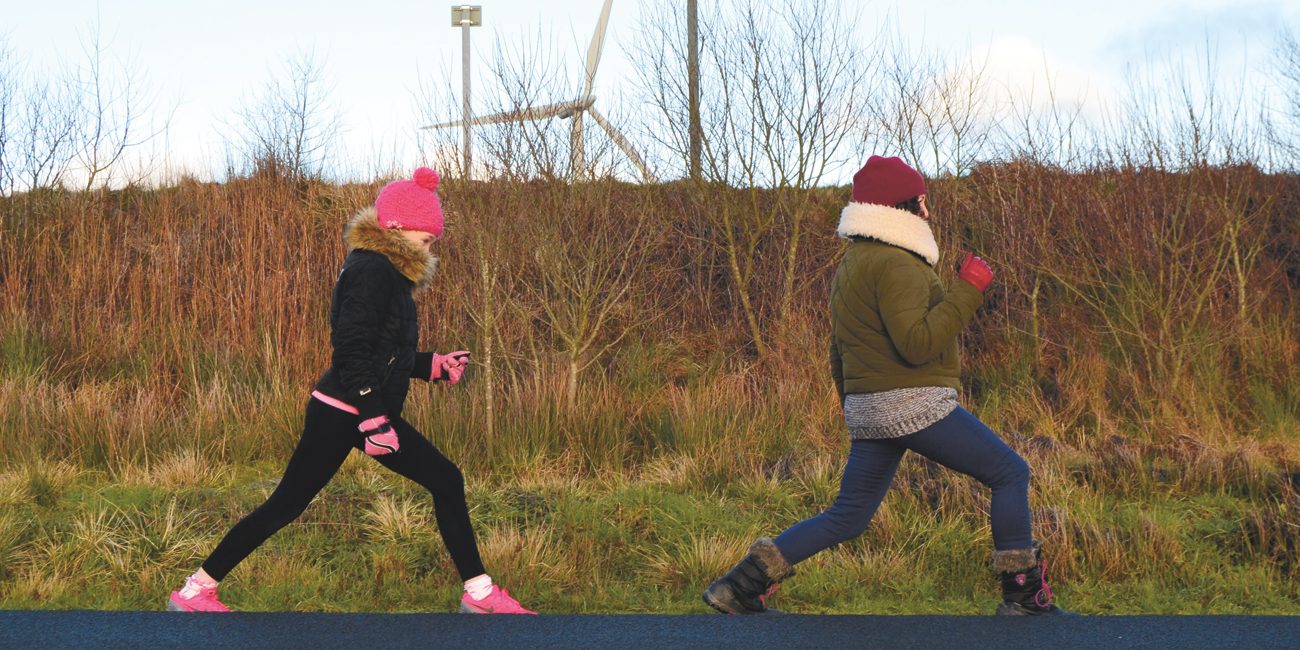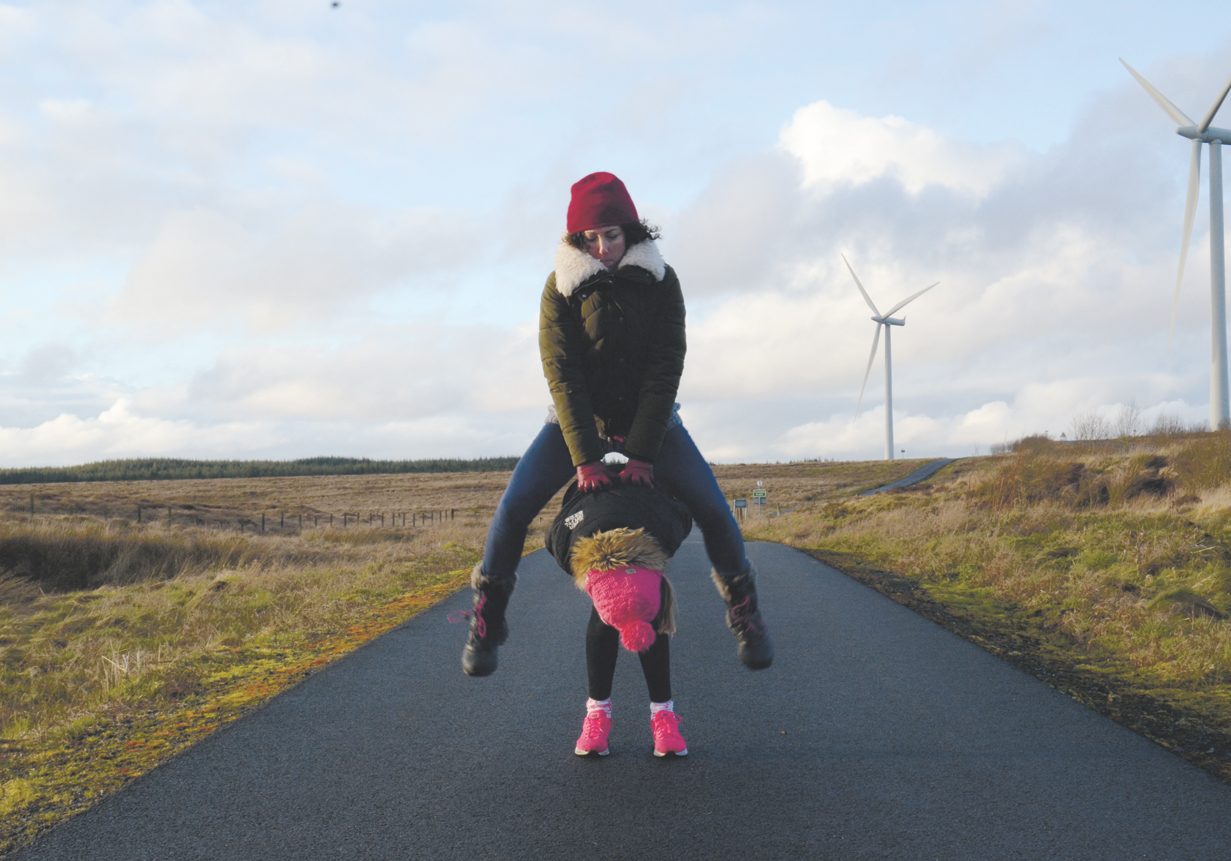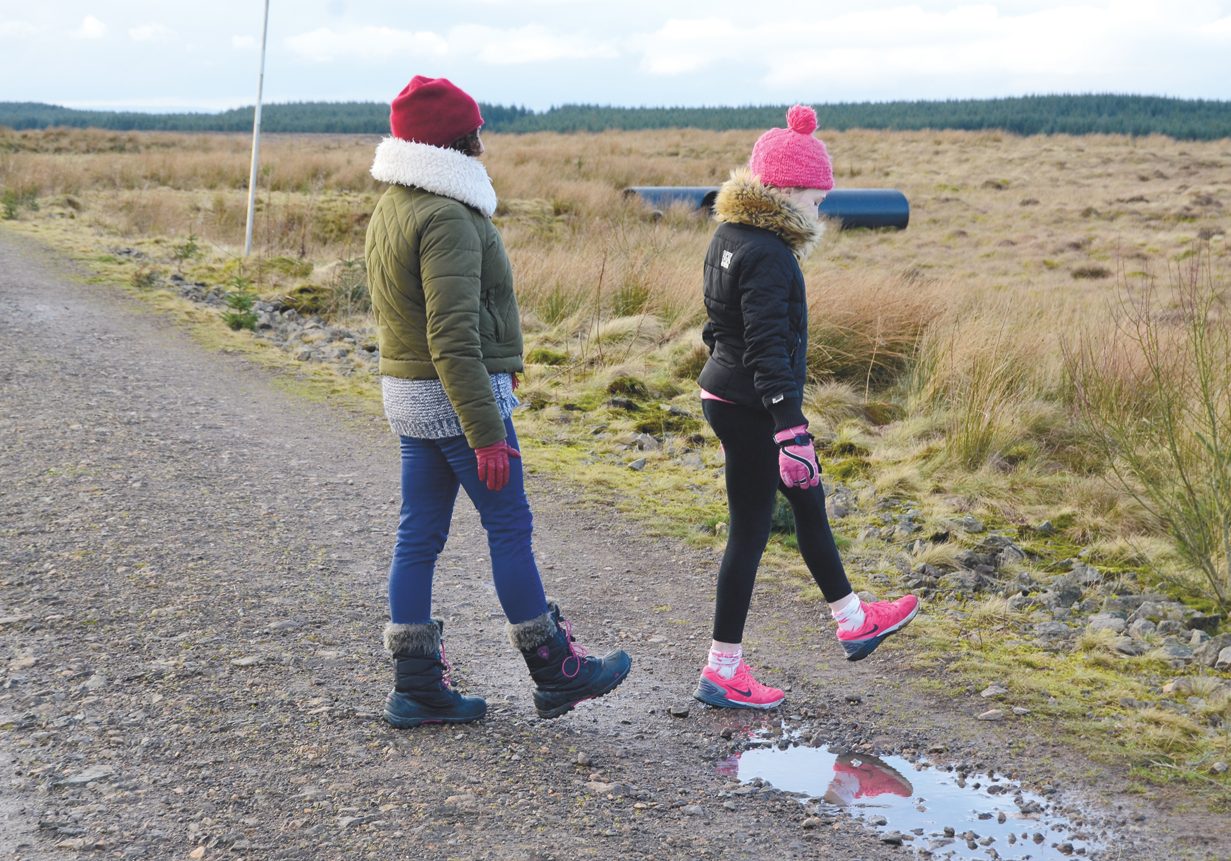
Yoga games for children
Yoga outdoors: No mat? No problem! Simple yoga ideas to get the children outside and moving how nature intended. By Veronica Greene
Ionce heard that children and dogs are very similar: feed them, water them and walk them regularly to keep them healthy and happy. I like to think of this as one of ‘life’s little rules’, but it was definitely easier when the children were younger and less inclined to express their opinions!
As a parent, getting the children outdoors can be challenging amid grumblings of “It’s boring!”, “It’s too cold!” or “It’s too wet” putting even the most determined parent off.
If the weather is cold or wet, then our posture changes to protect us from the elements: shoulders become slumped, chest closed off and our mood can be low. If we change our posture, then we automatically let more oxygenated blood travel to the brain, lifting our mood and making the whole experience more pleasant.
Here are some tips to help achieve this:
Follow the leader
First, let them be in charge – well, just for a little while! What child doesn’t love the idea of taking control – and ‘follow the leader’ is a very simple way to do this. Encourage everyone to take part as the person following exactly gets to be the leader next.
Put your best foot forward
Starting from our physical foundation: our feet. The foot is an incredible piece of structural engineering consisting of 52 bones. There are three layers of muscle which, combined with connective tissue and the muscles of the inner ankle, lift the bones into three arches to support the weight of our body. These muscle, joints and connective tissue communicate with our brain, through the nervous system, developing our spatial awareness. This is best achieved by movement on bare feet but can be impractical outdoors, depending on the terrain. Instead, develop the feet and proprioception skills by wearing your outdoor shoes on a more challenging surface. There are plenty of uneven surfaces but keep it safe and make it fun!
- Stepping stones but watch out for the wobbly ones.
- Walking the line keep to the edge of a path or grassy verge. This is actually trickier than it sounds, and really challenges your balance.
- Don’t step on the cracks this can be further challenged by staying on tip toes and not allowing your heels to touch the ground.
The Ministry of Silly Walks
This is where you can get really silly and your inner Monty Python can be let loose. For those who are unfamiliar with Monty Python then google the classic British comedy, “Ministry of Silly Walks”, and you’ll get the picture.
It’s not all about being silly, though, and good form is important
- Deep lunges make sure the front knee is directly above the ankle and aim for a deep, 90 degree bend in the knee.
- Pendulum swings swinging one straight leg, one at a time. Get everyone to imagine their leg begins at the bottom of the ribcage and this is where the leg (pendulum) swings from. Effectively, the leg actually does begin here as this is where the deep psoas muscle, the only muscle that connects upper body to lower body, begins. Try it: it feels amazingly relaxing on the shoulders and neck.
- Statues add in a few one-legged balance postures and you are strengthening the hip stabilisers, the core muscles and adding the best part of the game (‘who can hold the longest’ will be the leader!).
Go upper body while out for a walk
- Leap frog the person who is leaping is taking a leap of faith while working their upper body. The person crouched down is getting a lovely stretch on their back while also taking a leap of faith that they won’t get kicked (accidentally of course)!
- Wheelbarrow race just take a thick pair of gloves.
Eye spy with my little eye
Did you know that short sightedness is being classed as a global epidemic? The World Health Organisation have stated that 30% of the population are affected by myopia. Children spend less time outside and more time looking at devices close up. They no longer require their distance vision. Our minds and bodies are constantly evolving and as we no longer use our distance vison our bodies are phasing it out.
Take it in turns to do eye spy or just identify the furthest object the eyes can see. Look in all directions: can you detect the colour as well as the shape (and of course reward the person who observed best by letting them choose the silly walk!)?


Pranayama as you go
Instinct dictates that we breathe diaphragmatically, through the nose, from the beginning of life. Over time, however, we learn bad habits which can change this basic pattern, resulting in many children and adults becoming mouth breathers. Mouth breathing can lead to numerous ailments including asthma, sleep apnea, snoring and structural changes to jaw development.
- Stop to smell the roses and any other flowers Encourage breathing through your nose by slowly sniffing the scent of flowers. This could even be a way of guessing what the picnic sandwich fillings are.
- Blowing dandelion ‘clocks’ the ultimate outdoor breathing game to slow down the out-breath, resulting in the relaxation response. Find a dandelion ‘clock’ and blow to disperse the seeds (we want to see who can take the longest on just one out-breath) Have fun!
Veronica Greene founded Little Greene Yoga and offers a certified children’s teacher training package
(3-5yrs; 5-8yrs; 8-12yrs, teen - mind & body (12-18yrs) & postnatal yoga). Visit: LittleGreeneYoga.com





